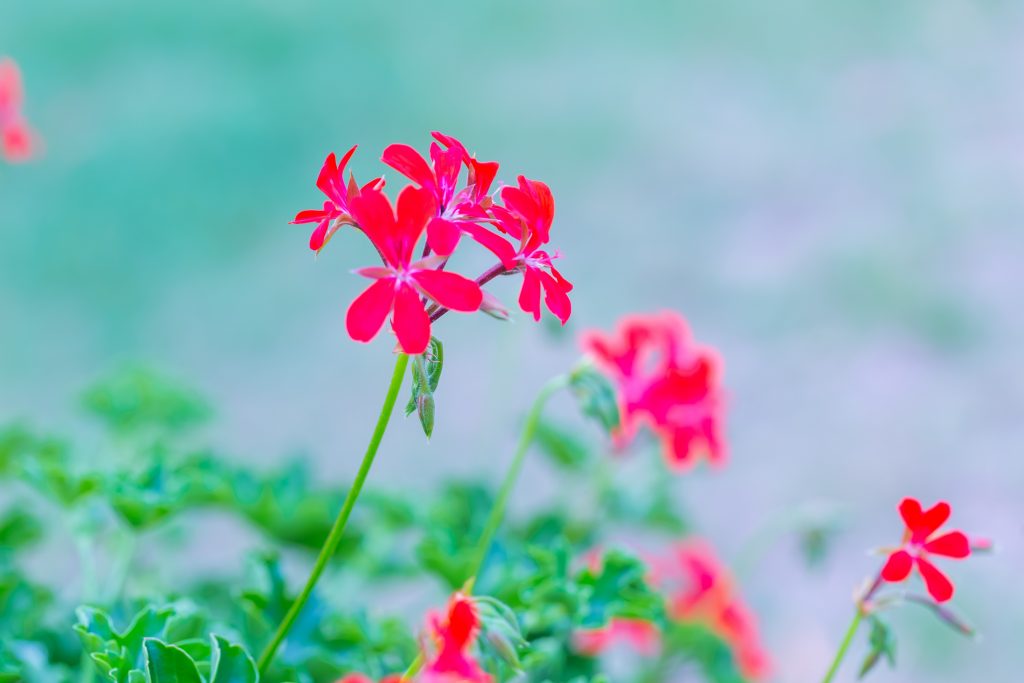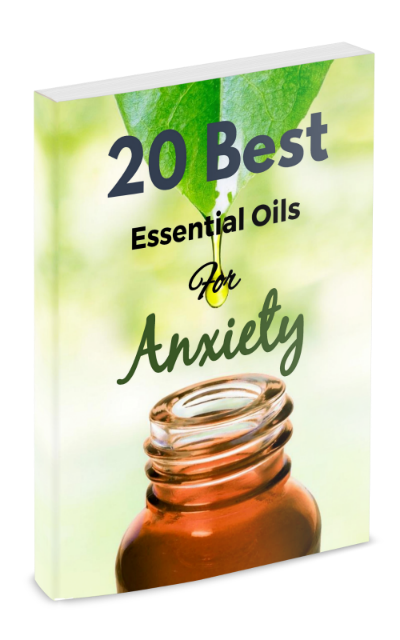Geranium essential oil is generally very pale green and has a distinct scent. The scent is strong and peppery with an earthy and herbaceous character.
Geranium essential oil is extracted through steam-distillation of the leaves and stalks. The properties of the essential oil can vary depending on the growing climate and the soil.

Use of Geranium Essential Oil for the Body
Geranium is astringent, antiseptic and antibacterial. It also has anti-inflammatory properties and can treat gastritis and colitis. It boosts the lymphatic system and is one of the best oils for treating fluid retention and cellulite. It can also be used to treat hemorrhoids.
Geranium essential oil is a general tonic and used for treating fatigue and during recovery from illness.
Women going through menopause or who suffer from menstrual problems such as irregular or painful menstruation can find relief by gently inhaling geranium essential oil.
Geranium essential oil is particularly helpful in skin care and in many skin disorders, including eczema and can be used to treat fungal infections such as athlete’s foot.
This essential oil is also popular in perfumes, skin care products, soaps and cosmetics and can act as an insect repellent or deodorant.
Use of Geranium Oil for the Mind
Geranium Essential Oil has an uplifting and relaxing effect and can help with hormonal imbalance.
It helps people suffering mental and emotional fatigue to rediscover their emotional strength & stamina and enhances alertness and promotes higher energy levels
Geranium Essential Oil Relieves Anxiety, Depression, And Stress Caused By:
- Agitation
- Frustration
- Irritability
- Overwhelming emotions
Geranium in Ancient History
Geranium was known in Ancient Egypt. Some varieties of the plant have later been used in African folk medicine. A paste was made with the leaves to treat wounds and to stop bleeding. The roots of the plant were steeped in water in order to wash patients who had fever.
Geranium in Modern History
Geranium came to Europe in the end of the 17th century and soon became popular in Victorian households. The leaves were used as fragrant finger bowls at dinner tables. Geraniums were also planted in the house and the garden to keep evil spirits away.
In his book The Art of Aromatherapy, Robert B. Tisserand quotes Nicholas Culpeper:
“All geraniums are vulneraries but this herb more particularly so, only rather more detersive and diuretic, which quality is discovered by its strong, soapy smell; it answers very well taken inwardly with wine in powder, and also outwardly applied, for old ruptures”
Tisserand continues about the properties of geranium:
“The action of geranium on the nervous system is fairly pronounced. It is both sedative and uplifting, like bergamot, and is one of the essences successfully employed by Rovesti in the treatment of anxiety states. Like basil and rosemary, it is a stimulant of the adrenal cortex, whose hormones are essentially of a regulating, balancing nature”…
Geranium Essential Oil Cautions
Geranium is sometimes used to adulterate Rose essential oil and the latter should not be confused as geranium oil. Geranium oil itself is sometimes adulterated with oils such as Lemongrass.


